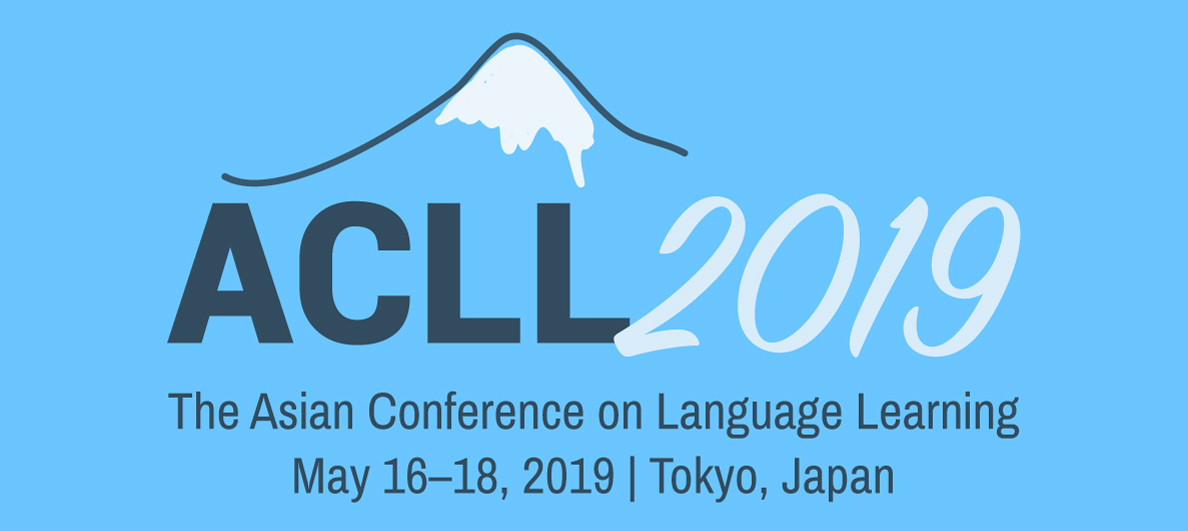Conference Theme: “Convergence|Divergence”
April 28 – May 1, 2016 | Art Center Kobe, Kobe, Japan
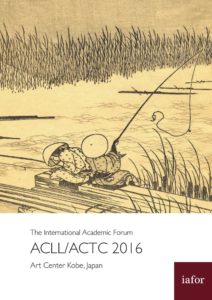 This open and exploratory theme of “covergence|divergence” asks us to look at the various collisions and frictions involved in the coming together of different individuals, cultures, ideas, as well as teaching and learning mediums and styles, that we negotiate as educators.
This open and exploratory theme of “covergence|divergence” asks us to look at the various collisions and frictions involved in the coming together of different individuals, cultures, ideas, as well as teaching and learning mediums and styles, that we negotiate as educators.
In language education we also have best practices that could be seen as a type of convergence. As teachers we want to have a solid foundation to our teaching that will help us understand important principles. But, we also see so many areas where beliefs diverge or where areas of interests are different. For example, over the years some teachers focussed on task based language education, others are doing motivation research, and still others have looked at critical pedagogy. These are examples of divergence, but they are overlaid on converging values such as creating a safe space for learners, respecting all in our classes, or having a deep commitment to our profession.
Take the changes in digital communication over the past 20 years. We have moved from the open World Wide Web and Internet of Tim Berners-Lee to a more contained online experience that is found in mobile phone apps or social media. Some have decried this filtering into “walled gardens” as stultifying and robbing the future of open inquiry because when everyone accessed the same Internet, they could roam widely and make discoveries. However, as we are funneled into application silos that do not interact with each other we become separated from each other and from the open bazaar of the Internet and are–dare we say–forced to gather in niche communities.
Moreover, at each convergence and divergence is the possibility of connection. The connection or connector is the human intelligence that we apply to our creative work. It is our humanness that ultimately connects us whether we are converging or diverging. Are you on the inside of a supportive community that wants to make itself understood to those outside? Or, are you on the outside watching as schools of thought and competing values seem to draw colleagues in different directions? The reality is many of us find ourselves in both situations–continuously converging and then diverging.
This International Academic Forum can be the medium that brings us together to negotiate the vibrant appeal of openness and the power of a concentrated coherent view. Through an interdisciplinary approach, we can embrace the ebb and flow of these contradictions to better understand our way forward as we develop as educators.
Speakers
Stephen Ryan
Waseda University, Japan
 Stephen Ryan has been involved in language education for over 25 years and is Professor of Applied Linguistics in the School of Culture, Media and Society at Waseda University, Tokyo (from April, 2016). His research and publications cover various aspects of psychology in language learning, with his most recent books being The Psychology of the Language Learner Revisited (co-authored with Zoltán Dörnyei) and Exploring Psychology in Language Learning and Teaching, co-authored with Marion Williams and Sarah Mercer (Oxford University Press).
Stephen Ryan has been involved in language education for over 25 years and is Professor of Applied Linguistics in the School of Culture, Media and Society at Waseda University, Tokyo (from April, 2016). His research and publications cover various aspects of psychology in language learning, with his most recent books being The Psychology of the Language Learner Revisited (co-authored with Zoltán Dörnyei) and Exploring Psychology in Language Learning and Teaching, co-authored with Marion Williams and Sarah Mercer (Oxford University Press).
Keynote Presentation: “Psychology in Language Learning; Diverging Approaches and Converging Goals”
In recent years there has been a growing recognition that language teachers require more than simply a knowledge of language and teaching techniques. Language education is not a one-way process and teachers need to be able to understand and to harness the various contributions learners make to their own learning. These contributions are crucially informed by learner psychology, which encompasses the ways in which learners view themselves and their abilities, their motivation for initiating and persisting with learning tasks, their beliefs about how language should be learned and taught, and the range of emotional states encountered throughout the long, and often arduous, language learning experience.
Of course, good teachers already understand psychology – it is a key factor in the various classroom decisions they make – but this understanding often comes at an intuitive level. However, I wish to argue that good practice demands a more systematic knowledge of concepts from educational psychology – such as motivation, identity, and group formation. Fortunately, in the world of language education research, there has been a surge of exciting initiatives exploring diverse aspects of learner psychology and the good news is that we are now witnessing moves to bring these diverse strands of research together to form a practice-oriented resource. In this talk I hope to show some of the ways in which this resource can enable teachers to better understand both their own teaching and the potential within their learners.
Louise Ohashi
Meiji University, Japan
 Louise Ohashi is an Associate Professor in the School of Global Japanese Studies at Meiji University, Japan. She has been teaching English at university level since 2007, and prior to that she worked within the private language school sector as an English teacher, teacher trainer and Director of Studies. Before settling in Japan, she designed and taught a range of English courses in Australia, England and Italy. She holds a Master of Education (TESOL) and is currently writing her dissertation for a PhD at Charles Sturt University, Australia. Her dissertation examines Japanese students’ independent language learning practices, and explores the impact that introducing students to online tools in their formal education can have on what they do outside of class.
Louise Ohashi is an Associate Professor in the School of Global Japanese Studies at Meiji University, Japan. She has been teaching English at university level since 2007, and prior to that she worked within the private language school sector as an English teacher, teacher trainer and Director of Studies. Before settling in Japan, she designed and taught a range of English courses in Australia, England and Italy. She holds a Master of Education (TESOL) and is currently writing her dissertation for a PhD at Charles Sturt University, Australia. Her dissertation examines Japanese students’ independent language learning practices, and explores the impact that introducing students to online tools in their formal education can have on what they do outside of class.
Featured Presentation: “Improving Language Education with Digital Technology: Tales of Resistance and Encouragement from Japan”
Japan is known as a technological leader, famous for its high-speed bullet trains, innovative cars and the multitude of electronic products that have turned brands such as Sony into household names. Given the reputation this country has for its cutting-edge technology, people often assume that the education system is also high-tech. However, the typical high school classroom here only has textbooks and blackboards, with devices such as computers, tablets and smartphones used sparingly, if at all. Due to this, university students tend to have limited experience in using digital technology for language learning when they begin their degree, and for some this does not change much by graduation. There is currently an invisible line between language educators and students who view digital technology as a useful tool for second language acquisition, and those who see it as irrelevant or even detrimental to learning. This creates a dilemma for teachers in terms of best practice. What are teachers to do when their understanding of best practice diverges with those of their colleagues and students? Should those who see value in digital technology reject it to ensure their teaching practices converge with the expectations of those who see it as inappropriate, or should they forge on, researching further in an effort to contribute knowledge that will allow for a deeper understanding of the language-based affordances digital technology can offer? I have chosen to do the latter, so in this presentation I will introduce key insights that I have gained in the last few years through conducting a range of technology-based research projects at Japanese universities. In doing so, I will share statistics and stories that have convinced me that digital technology is an invaluable tool that should be incorporated into formal education to enhance learning opportunities in language classrooms and, even more importantly, outside of them.
James York
Tokyo Denki University, Japan
 James is an Assistant Professor at Tokyo Denki University, Japan where he conducts research on the use of games in language learning contexts. He is also a PhD candidate at the University of Leicester (UK). His PhD research is an investigation into the potential of virtual world tasks as a way to improve beginner learners’ oral proficiency. The aim of the study is to look for both quantitative and qualitative differences in output when learners complete similar online and offline tasks. The results, then, should help educators when employing virtual worlds as a domain for language learning. Additionally, James has started research on the application of analog games in the language classroom as part of a wider game-based curriculum. James is also the founder of Kotoba Miners, an online Japanese learning community which uses Minecraft as a domain for teaching.
James is an Assistant Professor at Tokyo Denki University, Japan where he conducts research on the use of games in language learning contexts. He is also a PhD candidate at the University of Leicester (UK). His PhD research is an investigation into the potential of virtual world tasks as a way to improve beginner learners’ oral proficiency. The aim of the study is to look for both quantitative and qualitative differences in output when learners complete similar online and offline tasks. The results, then, should help educators when employing virtual worlds as a domain for language learning. Additionally, James has started research on the application of analog games in the language classroom as part of a wider game-based curriculum. James is also the founder of Kotoba Miners, an online Japanese learning community which uses Minecraft as a domain for teaching.
Featured Presentation: “Language Learning in Virtual Worlds: Task Creation and Implementation”
Task-based Language Teaching within Computer Assisted Language Learning is a maturing, well-established field of research. There are a number of studies investigating the language learning opportunities and affordances of online games and virtual worlds, where World of Warcraft and Second Life are the two most used domains.
Studies of virtual worlds and language learning predominantly focus on students’ text-based interactions. And in addition to this, there is often a focus on how L2 learners interact with native speakers. Although such studies help to highlight the sociocultural aspects of language learning in complex virtual worlds, studies on their value within an L2 classroom are limited. Low-level EFL learners may find that the cognitive load of playing in a Massive Multiplayer Online Role Playing Game’s (MMORPG) complex environment hinders their L2 production.
Where learner speaking is focused on, tasks often do not utilise the affordances of the virtual world, or implement particularly open-ended tasks that do not inspire communication between participants.
The aim of this presentation, then, is to:
- Introduce a number of games and their potential for language learning.
- Highlight the open-world game *Minecraft* as a key tool in helping educators develop suitable tasks for learners.
- Critically evaluate the successful application of such virtual worlds in low-level, monolingual, EFL contexts.
Jo Mynard
Kanda University, Japan
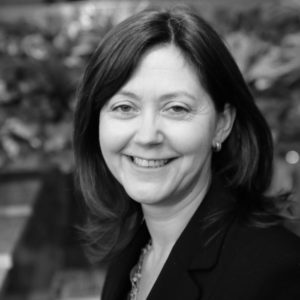 Dr Jo Mynard is an Associate Professor and Director of the Self-Access Learning Centre (SALC) at Kanda University of International Studies (KUIS) in Japan. At KUIS, she advises language learners, and oversees academic support, research and the general direction of the SALC. She also teaches an undergraduate course on Effective Language Learning at KUIS and a graduate course on Learner Autonomy as part of the MA TESOL programme at the KUIS graduate school. She is a part-time faculty member on the Doctor of Education programme in TESOL at the University of Anaheim (USA), an occasional supervisor at the university of Birmingham (UK) on the MA TESOL programme, and an advisor to doctoral candidates at the Education and ICT programme at the Open University of Catalunya (Spain). She has co-edited four books. Two on learner autonomy (2011; 2014), and two on advising in language learning (2012). She recently co-authored a book (with Satoko Kato) on reflective dialogue / advising which was published by Routledge (New York) in August 2015. She has been the editor of SiSAL (Studies in Self-Access Learning) Journal –a peer review, open access publication– since 2010.
Dr Jo Mynard is an Associate Professor and Director of the Self-Access Learning Centre (SALC) at Kanda University of International Studies (KUIS) in Japan. At KUIS, she advises language learners, and oversees academic support, research and the general direction of the SALC. She also teaches an undergraduate course on Effective Language Learning at KUIS and a graduate course on Learner Autonomy as part of the MA TESOL programme at the KUIS graduate school. She is a part-time faculty member on the Doctor of Education programme in TESOL at the University of Anaheim (USA), an occasional supervisor at the university of Birmingham (UK) on the MA TESOL programme, and an advisor to doctoral candidates at the Education and ICT programme at the Open University of Catalunya (Spain). She has co-edited four books. Two on learner autonomy (2011; 2014), and two on advising in language learning (2012). She recently co-authored a book (with Satoko Kato) on reflective dialogue / advising which was published by Routledge (New York) in August 2015. She has been the editor of SiSAL (Studies in Self-Access Learning) Journal –a peer review, open access publication– since 2010.
Featured Presentation: “Convergence and Research in Technology-supported Self-directed Language Learning (SDLL)”
Most learning takes place outside the classroom (Benson & Reinders, 2011; Reinders & Benson, forthcoming), and as educators we have a responsibility to help our learners to develop an awareness of and capacity to take charge of their own language learning. Technology could now be argued to have a mostly normalised role (Bax, 2003) in providing learners with opportunities to study and practice a target language. However, we still have much to learn about the role that technology might play in helping learners to manage their own learning and to become autonomous and self-directed language learners. I will briefly outline what is meant by self-directed language learning (SDLL) and what skills are needed in order for learners to be able to develop a capacity for lifelong learner autonomy (Benson, 2011). I will then take a look at ways in which learners can draw upon technology tools in order to combine language study, language practice, and learning self-management to reach their language goals. In order for us to achieve true convergence, more research into technology-supported SDLL is needed. Drawing on an ongoing action research project at my own institution where my colleagues and I have produced, implemented, and are currently evaluating a custom-made app for managing self-directed language learning, I will introduce a model for researching and evaluating the effectiveness of technology-supported SDLL.
Richmond Stroupe
Soka University in Tokyo, Japan
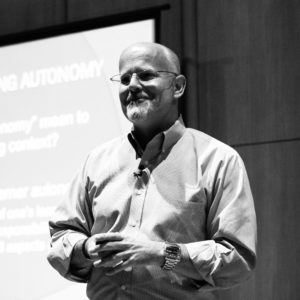 Richmond Stroupe is the Chair of the Masters in International Language Education: TESOL Program at Soka University in Tokyo, Japan. He is professionally active in Japan, as the Vice President of the Japan Association for Language Teaching (JALT), with TESOL International Association in the United States through involvement in various committees, working groups and task forces, and in Cambodia with CamTESOL, as a member of the Advisory Board of the IDP Education sponsored Language Education in Asia publication, an internationally peer-reviewed online journal focusing on language education research and practice in the region.
Richmond Stroupe is the Chair of the Masters in International Language Education: TESOL Program at Soka University in Tokyo, Japan. He is professionally active in Japan, as the Vice President of the Japan Association for Language Teaching (JALT), with TESOL International Association in the United States through involvement in various committees, working groups and task forces, and in Cambodia with CamTESOL, as a member of the Advisory Board of the IDP Education sponsored Language Education in Asia publication, an internationally peer-reviewed online journal focusing on language education research and practice in the region.
He actively conducts workshops, publishes and presents on professional activities and research projects, which include the use of international standards as internal evaluative tools, teacher education practices, curriculum and professional development, and developing learners’ autonomy and critical thinking skills.
Featured Presentation: “Enhancing Learner Autonomy in Japan Through Teachers’ Professional Development”
Learner autonomy, commonly defined as learners taking responsibility for their own learning, is believed to improve motivation, engagement, and overall academic performance. However, the appropriateness of the concept has been contested in Asia, and the practices used for developing autonomy are considered to be highly contextualized. In Japan, the obstacles to developing learner autonomy, including individual learners’ past educational experiences and institutional goals that are often highly exam focused, are often seen as insurmountable. On the contrary, the findings of the current study suggest that there are areas in which improvement can be realized. This paper investigates instructor views on their students’ readiness for autonomy, the practices used for developing learner autonomy, and the constraints on promoting learner autonomy at a private university in Tokyo, Japan. The presenter will report on data collected from English language and content university instructors as they discussed, reflected on, and attempted to promote learner autonomy through a series of workshops, surveys, interviews, and curriculum development over two semesters. The results provide strategies to overcome obstacles and outlines for enhancing learner autonomy in Japan. As one component of a pan-Asia research project, the current study provides points of comparison with other Asian contexts. This paper, together with these regional studies, can contribute to an overall theory of learner autonomy in Asia.
Organising Committee
Ted O’Neill
Gakushuin University, Japan
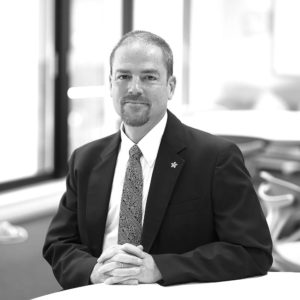 ACLL/ACTC 2016 Conference Chair, Ted O’Neill, is a Professor at Gakushuin University, Tokyo. He recently held the position of Associate Professor of English in the College of Liberal Arts and Sciences at Tokyo Medical and Dental University. Previously, he taught in the English Language Program at J. F. Oberlin University where he also served as Coordinator for the Foundation English Program. Ted was co-editor of The Language Teacher for the Japan Association for Language Teaching (JALT) and currently serves on the JALT National Board of Directors as Director of Public Relations. He received an M.A. in ESL and Bilingual Education from the University of Massachusetts/Boston, USA. Ted joined the Apple Distinguished Educator Program in 2011 and completed a postgraduate Certificate of Educational Technology and Information Literacy through the Graduate School of Education at the State University of New York in 2014.
ACLL/ACTC 2016 Conference Chair, Ted O’Neill, is a Professor at Gakushuin University, Tokyo. He recently held the position of Associate Professor of English in the College of Liberal Arts and Sciences at Tokyo Medical and Dental University. Previously, he taught in the English Language Program at J. F. Oberlin University where he also served as Coordinator for the Foundation English Program. Ted was co-editor of The Language Teacher for the Japan Association for Language Teaching (JALT) and currently serves on the JALT National Board of Directors as Director of Public Relations. He received an M.A. in ESL and Bilingual Education from the University of Massachusetts/Boston, USA. Ted joined the Apple Distinguished Educator Program in 2011 and completed a postgraduate Certificate of Educational Technology and Information Literacy through the Graduate School of Education at the State University of New York in 2014.
Steve Cornwell
Osaka Jogakuin University, Japan
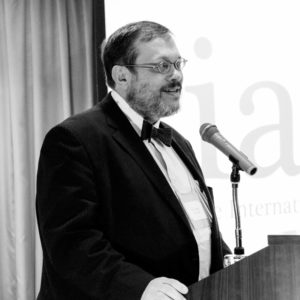 Steve Cornwell, IAFOR International Director of Programme: Language Learning, is Professor of English and Interdisciplinary Studies at Osaka Jogakuin College, and also teaches on the MA TESOL program for the New School at NYU. He holds an MFA from Virginia Tech, and an Ed.D. from Temple University. Professor Cornwell is Director of Program for the Japan Association of Language Teachers (JALT), and a member of their National Board of Directors. He is also a former editor of the journal. An American who has made Osaka his home, Professor Cornwell first became involved with IAFOR as a Featured Speaker at the first ACE conference in 2009, and has gradually become more involved in the organisation, and in his capacity of Local Conference Chair, now assists in the logistical and administrative side of every event. He advises extensively on academic matters too, with particular responsibility for overseeing and developing the programmes of the ACLL/ACTC conference in Japan, and the ECE/ECLL/ECTC event in the UK.
Steve Cornwell, IAFOR International Director of Programme: Language Learning, is Professor of English and Interdisciplinary Studies at Osaka Jogakuin College, and also teaches on the MA TESOL program for the New School at NYU. He holds an MFA from Virginia Tech, and an Ed.D. from Temple University. Professor Cornwell is Director of Program for the Japan Association of Language Teachers (JALT), and a member of their National Board of Directors. He is also a former editor of the journal. An American who has made Osaka his home, Professor Cornwell first became involved with IAFOR as a Featured Speaker at the first ACE conference in 2009, and has gradually become more involved in the organisation, and in his capacity of Local Conference Chair, now assists in the logistical and administrative side of every event. He advises extensively on academic matters too, with particular responsibility for overseeing and developing the programmes of the ACLL/ACTC conference in Japan, and the ECE/ECLL/ECTC event in the UK.
Barbara Lockee
Virginia Tech., USA
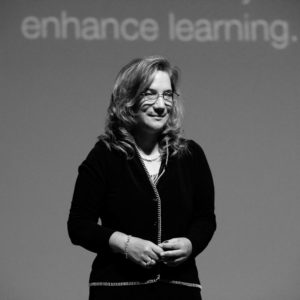 International Director of Programme: Technology, Education, Information and Society, Dr Barbara Lockee, is Professor of Instructional Design and Technology at Virginia Tech., USA, where she is also Associate Director of the School of Education and Associate Director of Educational Research and Outreach. She teaches courses in instructional design, message design, and distance education. Her research interests focus on instructional design issues related to technology-mediated learning. She has published more than 80 papers in academic journals, conferences and books, and has presented her scholarly work at over 90 national and international conferences. Dr Lockee is Immediate Past President of the Association for Educational Communications and Technology, an international professional organisation for educational technology researchers and practitioners. She earned her PhD in 1996 from Virginia Tech in Curriculum and Instruction (Instructional Technology), MA in 1991 from Appalachian State University in Curriculum and Instruction (Educational Media), and BA in 1986 from Appalachian State University in Communication Arts.
International Director of Programme: Technology, Education, Information and Society, Dr Barbara Lockee, is Professor of Instructional Design and Technology at Virginia Tech., USA, where she is also Associate Director of the School of Education and Associate Director of Educational Research and Outreach. She teaches courses in instructional design, message design, and distance education. Her research interests focus on instructional design issues related to technology-mediated learning. She has published more than 80 papers in academic journals, conferences and books, and has presented her scholarly work at over 90 national and international conferences. Dr Lockee is Immediate Past President of the Association for Educational Communications and Technology, an international professional organisation for educational technology researchers and practitioners. She earned her PhD in 1996 from Virginia Tech in Curriculum and Instruction (Instructional Technology), MA in 1991 from Appalachian State University in Curriculum and Instruction (Educational Media), and BA in 1986 from Appalachian State University in Communication Arts.
Conference Photographs
Human interaction is at the root of all knowledge creation, and hence the great importance of the conference in introducing, testing and spreading ideas through challenging, rigorous and thought provoking discussion and debate. But beyond that, a conference is also a great chance to meet people from around the world, and to extend and grow ones’s professional network, and above all, to make friends.
It may be impossible to tell the story of the conference, or rather the many hundreds of interlocking stories that go to make up the conference, but the documentary photography in this slideshow aims to give a taster of the more serious academic side of the event, as well as the lighter side…
Conference Videos
Stephen Ryan
Keynote Presentation: “Psychology in Language Learning; Diverging Approaches and Converging Goals”
James York
Featured Presentation: “Language Learning in Virtual Worlds: Task Creation and Implementation”
Richmond Stroupe
Featured Presentation: “Enhancing Learner Autonomy in Japan Through Teachers’ Professional Development”
